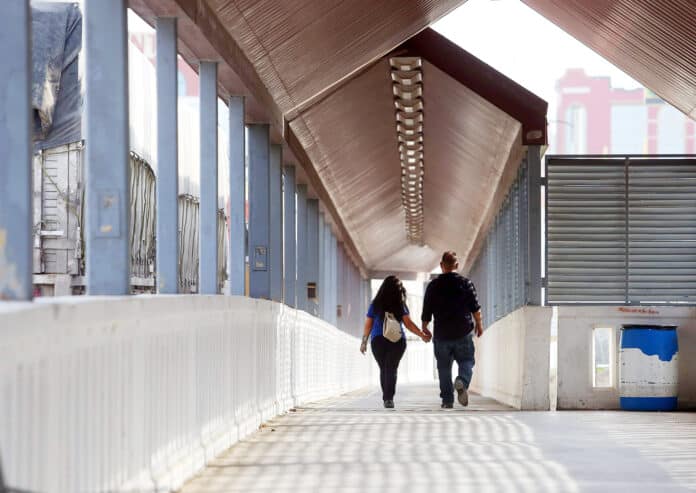
On Monday, fully vaccinated international travelers will be able to do something U.S. Customs and Border Protection barred them from doing so a year and nine months ago — crossing the border via land.
Unlike prior to the global health crisis that sparked the closure of bridges in March 2020, travelers will now have to abide by new rules, including a COVID-19 vaccination status check before they can enter the U.S.
U.S. citizens and legal permanent residents are among those exempt from needing to show their vaccination cards to cross.
When non-citizens arrive at the ports of entry, aside from their essential travel documents, like visas or passports, they will be required to provide a verbal confirmation of their vaccination status.
However, CBP officers may request proof and advise the public to have their records readily available to decrease wait times.
Here’s what you need to know before crossing the border:
>> Children 17 and younger are exempt from the vaccination requirement, while accompanying adults will need to be fully vaccinated;
>> Paper and digital vaccination cards will be accepted as proof of vaccination status, as issued in their original language, and printouts and digital photos of the vaccination card or record will not be accepted;
>> The list of approved vaccines are: Janssen/J&J, Pfizer-BioNTech, Moderna, AstraZeneca, Covishield, BIBP/Sinopharm, and Sinovac;
>> The last dose must have been given a full 14 days before the day of crossing;
>> Crossing wait times are expected to increase, and the public is advised to adjust their plans accordingly;
>> Staffing levels at bridges will be commensurate with those before the pandemic, CBP officials said Thursday; however, not all staff are vaccinated, but will be required to do so by Nov. 22.
International bridges are expected to open during their regular business hours.
The Centers for Disease Control and Prevention does make some exceptions for non-citizens and non-immigrants that include:
>> Persons with documented medical contraindications to receiving a COVID-19 vaccine;
>> Participants in certain COVID-19 vaccine trials;
>> Persons issued a humanitarian or emergency exception;
>> And persons with valid visas [excluding B-1 (business) or B-2 (tourism) visas] who are citizens of a foreign country with limited COVID-19 vaccine availability.
CBP officials emphasized the changes do not apply to irregular migration between ports of entry. People who show up at the border without proper documentation are still subject to expulsion back to Mexico.



